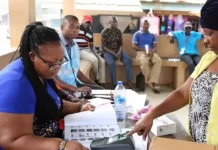
Survey54 a mobile survey platform aimed at Africa and the emerging markets and have produced a comprehensive report into demand for emergency breakdown services in Ghana. Commissioned by Sobek Capital and conducted this year, the report has been created using mobile technology, advanced artificial intelligence. The consumer data collected is therefore a real-time, reliable snapshot, showing a burgeoning market for providing motorists with flexible packaged breakdown services. It is an encouraging picture for anyone considering entering this market.
The report not only demonstrates the need and desire for such services but provides a deeper analysis of the demographics most likely to purchase such a service and the pricing structures that would most appeal to Ghana’s drivers.
This information is outlined in a succinct report, which includes clear graphs and charts alongside concise explanation and analysis.
What are the key findings?
Surveying 425 motorists aged between 18 and 34 and from the densely populated city of Accra, the results show that the clear majority of those involved experienced 5 or more breakdowns per year, at an average cost of up to $500 per year. Although just over a third of those questioned were still not certain they would wish to pay for a breakdown service, the remaining participants showed clear interest, particularly if service and quality were to meet an affordable pricing structure.
Those surveyed were asked what the biggest cause of their expenses was, and there was a clear feeling that having a second-hand car was the major factor in incurring repair expenses. Proportional numbers blamed bad roads or low-quality fuel, with only a small number attributing their troubles to bad mechanics – a sign that there at least a good number of trusted professionals operating in the area.
Guiding their interest in a comprehensive service are factors such as having a consistent mechanic to contact in times of need. An interesting finding is that young women tend to pay more for breakdown repairs than men, and whilst the proportion of female drivers is currently smaller, Survey54 notes that the demographic shifts already occurring in Nigeria and Ghana mean that this market is only going to grow.
Ultimately, the scope of the study signified that millennial motorists feel the need for streamlined mechanical services, particularly amongst female drivers. There is a caveat regarding the fact that Ghana’s motor industry is still in a relatively early developmental stage and this may necessitate working with a phased approach, and partnering closely with both local services and larger automobile companies.
Laying out their findings, Survey54 have outlined that the greatest chance of success for operators considering entering this market would be to consider a flexible subscription model, possibly even on a pay-as-you-go basis, for car breakdown services. When taken in line with the advice provided through the report, this would be a welcome and financially beneficial scheme for service providers, Ghanaian motorists and Ghana’s economy and motor industry alike.
























